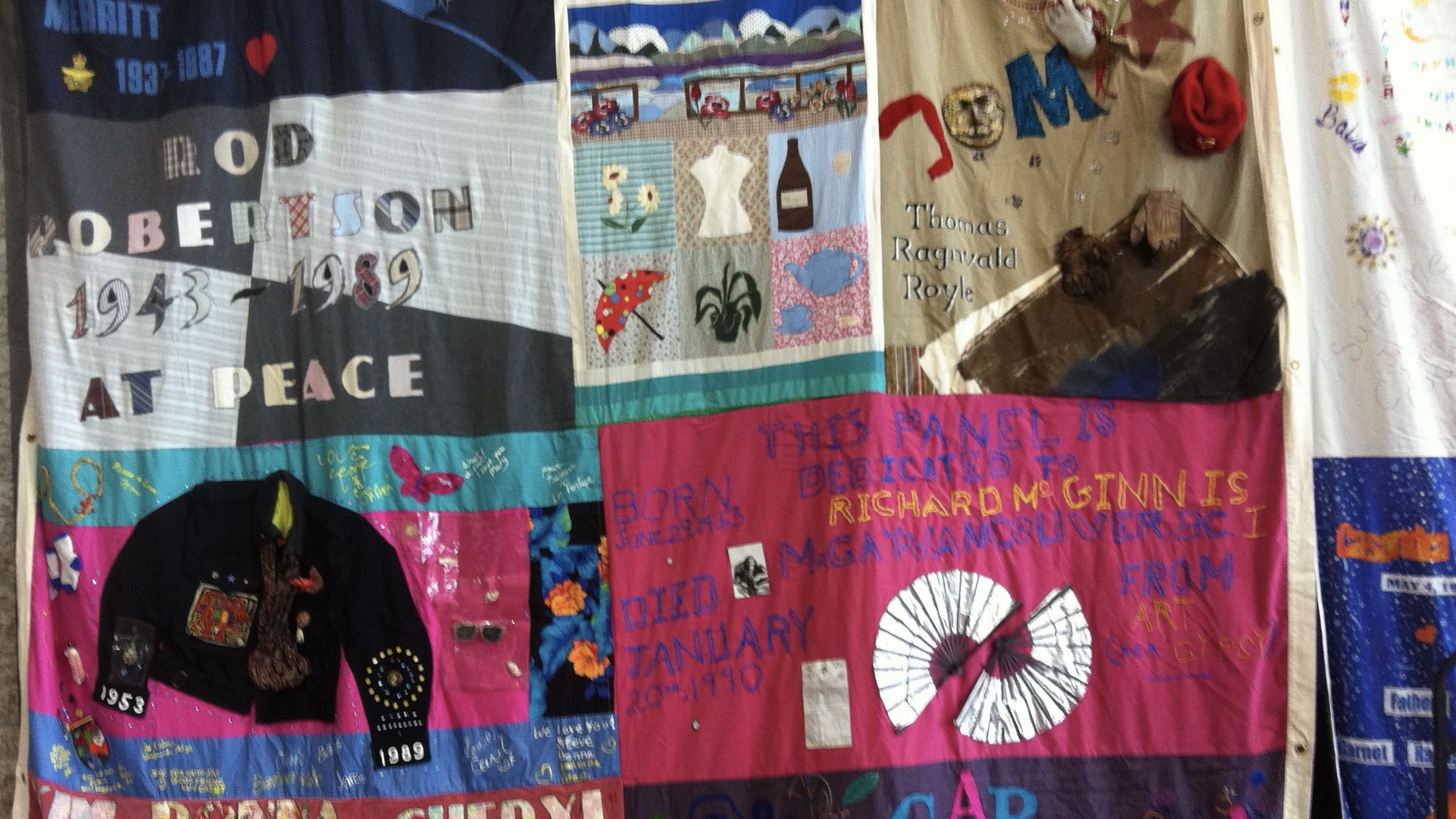Self-test for HIV now available in Canada
Some free tests to be distributed in Nova Scotia as part of a research study

caption
Some panels from the AIDS Memorial Quilt, a memorial to celebrate the lives of people who have died of AIDS-related causes.Nova Scotians now have the option to find out their HIV status by taking a test at home.
The self-test, approved by Health Canada on Nov. 2, provides results in less than a minute. The tests are available to order online for $35. The manufacturer, bioLytical Laboratories, says the test involves a simple finger prick, mixing up a solution and waiting for the results.
At-home testing is “wonderful for people in smaller communities,” said Daniel Sheppard, a nurse in the HIV clinic at the QEII Health Sciences Centre in Halifax.
Currently, anyone seeking an HIV test has to book an appointment at the clinic (walk-in appointments are currently on hold) or the Halifax Sexual Health Clinic. Another option is to ask your family doctor for a blood requisition form. Related stories
The number of people living with HIV in Canada has increased over the last few years and around 13 per cent of people with it do not know they are infected, according to a recent report from the Public Health Agency of Canada. While HIV numbers in Nova Scotia are below the national average, the province declared an outbreak in 2018 when reported cases doubled.
The AIDS Coalition of Nova Scotia is calling on the province to increase HIV testing options and to make self-testing kits free.
Community organizations in Canada plan to distribute 60,000 of the newly approved tests for free across the country as part of a research study. One of those organizations is the Community-Based Research Centre, which focuses on the health of gay, bi, trans, Two-Spirit and queer men. This population still accounts for more than half of all HIV infections in Canada.

caption
HIV self-testKirk Furlotte, the centre’s Atlantic regional manager, is working with other regional community organizations that target at-risk populations. He said they hope to deliver self-tests in Nova Scotia in April to anyone who wants them.
Both Furlotte and Sheppard say there are still significant issues to work out, particularly regarding support for people who test positive for HIV.
The test kits come with a list of resources and information from the manufacturer. That information will be supplemented with local information when community organizations distribute the free kits, Furlotte said.
The Community-Based Research Centre has also hired a team of peer navigators, including one in Halifax. They are people to call to find out what to do when you get a positive result.
Furlotte said this is “not quite like full post-test counselling, but it’s able to get people to where they need to go.”
In Nova Scotia, the first place they would need to go is to get a blood test to confirm the results, either through a clinic or a family doctor. Furlotte said they would probably have to be referred to the infectious disease clinic in Halifax if they don’t have a family doctor who can provide them care in their community. According to the clinic website the average wait time is 55 days.
HIV self-tests are already available in 77 countries around the world, with Canada being the last G7 country to approve them.
About the author
Preet Bhogal
Preet Bhogal is a journalist in Halifax and has a dog named Cole. He writes about politics, health, and social justice issues.
